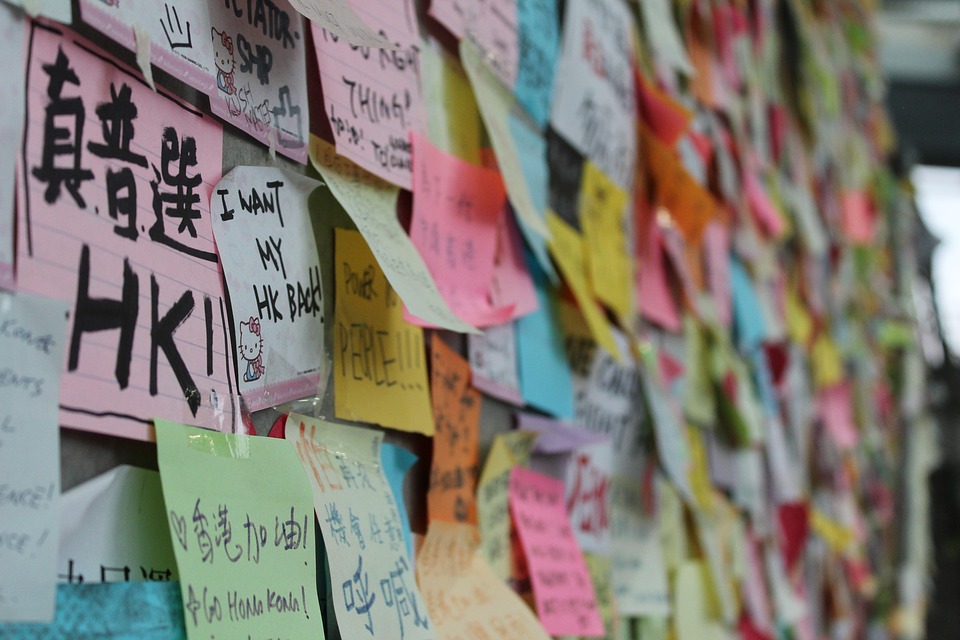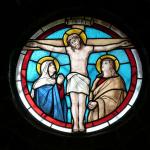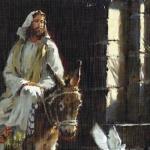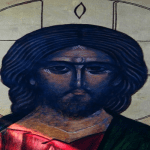
This is the fifth in a series of posts testifying about my conversion to liberation theology. For previous posts, here are the first, second, third, and fourth.
I had no idea that all of the exploration of the primal and the personal that I had commenced while hanging out with real Catholics was beginning to change my thinking on Radical Orthodoxy and the politics of the parish.
I should have known, though.
For one, it would have explained why I felt so ideologically confused during most of the Umbrella Movement. It was like I was thinking one thing and doing another. In my thinking and writing, I had been advocating for the kind of ‘good politics’ in the Anglican sense, and I had even written against the Anglican primate in Hong Kong to say that these political commitments, perfected in Anglicanism (so I thought), should lead to a support of the civic education and civil disobedience movement Occupy Central with Love and Peace. But in my actions, I had impulsively taken a side. I sided with the Umbrella Movement protesters in their opposition to the system that they found to have been oppressing them for quite some time through ‘property hegemony,’ the eradication of local economies, precarious employment, ridiculous housing prices, and the imposition of national education to erode a Hong Kong consciousness. As I wrote in a recent piece in INHERITANCE Magazine, this was a big deal for me: I had gotten off the fence.
Of course, in hindsight, I see now that this gap between my thinking and practice had been there well before the Umbrella Movement. I had in fact been blogging through the entire summer prior to the movement about why it would be important to support Occupy Central if and when it happened. The year before, I had also taken a side, albeit under my pseudonym Chinglican at Table, to call the evangelical megachurch pastor Rick Warren out for a blatant act of orientalizing racism on his social media. This had resulted in the writing of an open letter from Asian Americans to the ‘evangelical church’ for a long record of excluding Asian Americans from their ranks; I signed this by name and developed the concept of ‘the private consensus’ from this event.
But what I really did as an impulse during the early days of the Umbrella Movement was to put my name on record as opposing a local Chinese Christian pastor I had interviewed, a guy called Jonathan Chan, for going on record in the Vancouver Sun to say that Chinese Christians like his relatives wouldn’t care about the Umbrella Movement. We also wrote an open letter about this, decrying Chan as somebody who could not represent Christianity because he did not side with the marginalized, the poor, and the oppressed. These actions led to some even within the congregation where I worshipped questioning my motives. After all, these acts stood in blatant contradiction to what I advocated: the good politics of the parish, the production of harmonious communion, the ability to see from the perspective of those whose positions might seem oppressive to see that they are just people who need love too. In fact, the same people who had inquired lightly about Rick Warren and the open letter the year before were now mortified that I had, in their view, attacked a Chinese Christian brother in Christ local to Vancouver. My actions were hitting home, contradicting the way I thought that I had been thinking in my work.
As a result, my writing suffered. When my friend Sam Rocha read some of my early thoughts on the Umbrella Movement, he said that it was just a bunch of words that had no theory. I was quite offended because I had made it through Milbank and was plenty theoretically sophisticated. Still, I asked him what he meant by a lack of theory, and he replied that I didn’t have a theory of ideology. I said that of course I know what ideology is, and he said that I didn’t. If I did, I’d be reading Slavoj Žižek, who I knew at the time was considered an academic joke. What’s more, he was Milbank’s debate opponent in The Monstrosity of Christ. I planned to blow Sam off. However, I had my ego to protect, so I asked Sam which books to read. He gave me a list, and I ordered them all used. I would not be defeated by the Giant of Ljubljana.
But of course, what this tension led to what was a kind of paralysis in my writing. On the one hand, I felt the need to defend all the possible sides in a debate for the sake of harmonious communion. On the other hand, I had already taken a side, impulsively and imperfectly taking on a preferential option for the poor. I couldn’t do both. After a while, I could not write. I later described it to the Jesuit who became my spiritual father that it was like when I was writing a sentence, a train of words would come at me like a light from the other end of a tunnel to ram me. It’s about him – and my turn to Eastern Catholicism, and through that, into a full commitment to liberation theology – that I’ll have to write about next.















